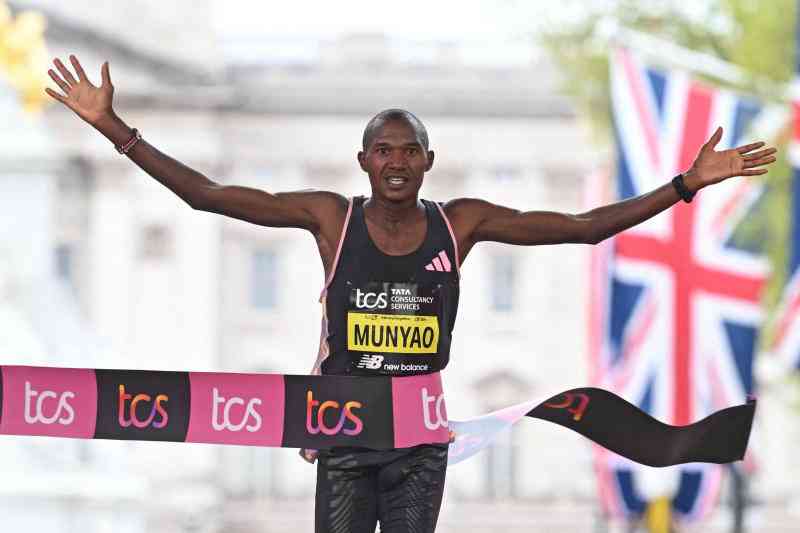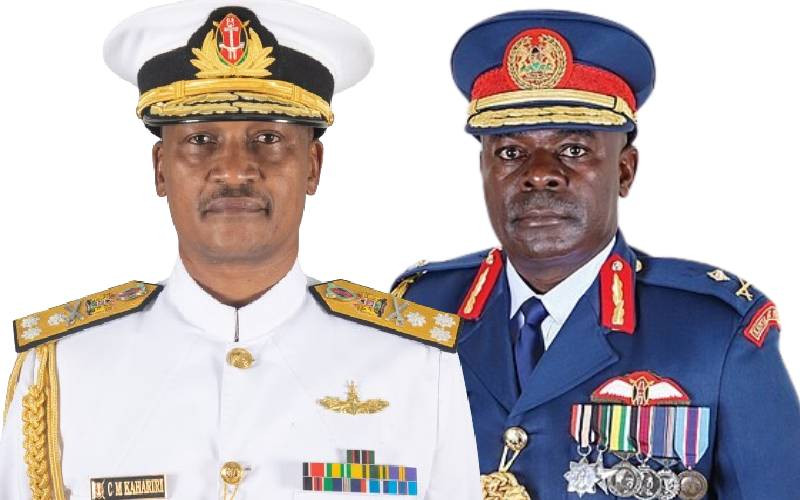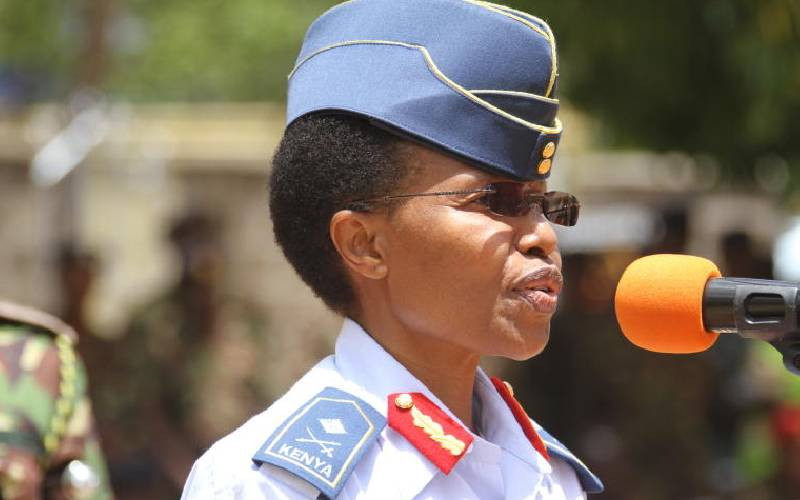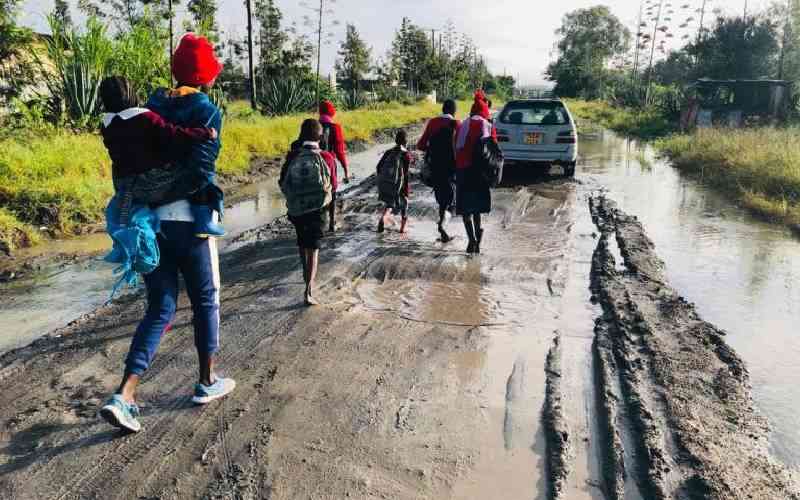Dr CHRISTINE OMBAKA is the Director of the Institute for Gender Studies and a senior lecturer at Maseno University. Her passion is HIV, Aids and women empowerment. She spoke to NICHOLAS ANYUOR
I have earned a place in the Who is Who in the World 2000 book because of my work with women, the girl-child and persons living with HIV and Aids. I was an achiever from a young age.
My love for gender began at an early age because my mother Elizabeth Ochola, my uncles and grandmother believed that a girl had to complete her studies first before getting married.
Unlike my family, most parents were against education, especially educating the girl child and so they did not send them to school.
In such villages, the girls were not valued and they were seen as objects to be married off.
I noticed this trend and I promised myself that when I was older I would do something to empower the girl-child, mostly those in rural areas.
My mother had a tailoring shop in the village where she trained girls who had dropped out of school. This way, she ensured the girls were independent, which reduced the instances of early marriage.
Career growth
Immediately after graduating from the University of Nairobi in 1975 with a Bachelor of Education in English and Literature, I was posted to Sinyolo Girls’ High School in Kisumu County as the principal.
Though I was just 25 then, with the help of a supportive staff, I was able to bring significant changes.
Despite the fact that most of my juniors were older than me, I had to respect them to win their trust and respect.
During that time, most parents were not willing to send their girls to school because they saw no value in it.
I was determined to change the mindset of the locals and preach to them the value of education.
Many parents listened to my message and allowed their daughters to attend school.
Stay informed. Subscribe to our newsletter
However, in 1990, I had to leave the job because I had gotten an opportunity to study Communication and Media at Lancaster University in the United Kingdom.
I also took that chance to complete my PhD degree in Gender Studies.
When I came back to Kenya, I used my knowledge in communication, media and literature to create awareness and champion for the rights of girls and women.
I also landed a job as a senior lecturer at Maseno University in the department of Communication and Media Technology which is my brainchild.
I started it in 1998 and became the first chairlady of the department, a position I held for seven years.
Achievements
Maseno University recently founded the Institute for Gender Studies and I was appointed its first director.
This platform will give me the necessary opportunity to improve gender studies, not only in Kenya, but regionally. My dream is to make it a world-class gender centre.
I want to come up with programmes for graduates and post-graduates in Gender Studies, where we shall have undergraduate degree in gender studies, Master’s degree in Gender and Social Policy, a PhD in Gender, and short courses on gender sensitisation.
I am also the Director of Nyako Ber Foundation, which aims to improve the lives of the girl-child in Nyanza.
I am a member of the International Society of Poets, African Women in Research and Development and a board member of many secondary schools in Nyanza, including Sawagongo Boys’ in Siaya. I have researched extensively on women and HIV and this has made me a consultant with national and international organisations such as the World Bank, United Nations Development Programme among others.
Researcher
I have also been involved in research on mobilisation in Southern Sudan and also with some local non governmental organisations like the Kisumu Medical and Education Trust on Rusinga Island.
Together with youth from Siaya County, I have started community based organisations, among them the Ulumbi Youth HIV and Aids and Support Group in Yala.
In the groups, we have also come up with plays, storytelling, cartoons and films to create awareness on HIV and Aids and women empowerment.
So far, I have developed three film documentaries namely, Going Home with the Rose, A Friend to the Last and Love that Never Was.
The National Aids Control Council funds most of our projects. Academics aside, I also plan to join active politics in future so that I can shape policy that will empower women and youth.
I would wish to encourage my fellow gender activists to be strong-willed because our society is still patriarchal.
I thank my parents for their strict discipline
I was born in 1954 in Uranga village, Gem District and later got married to my beloved husband, Wycliffe Oduor Ombaka, an economist and the Deputy Director at the Government Training Institute in Embu. I am the fifth born in a family of ten.
My mother, Elizabeth Owaga Ochola, was a hardworking woman and had a tailoring shop where she trained drop-out girls while my father worked at the then East African Railways and Habours. He passed on in 1989.
My parents were strict disciplinarians who made sure we all went to school and attained good grades.
My eldest sister, Penina Adhiambo, was also strict and ensured her followers were disciplined and worked hard in school.
I joined Maseno Primary School and later Star of the Sea in Mombasa where the headmistress ensured all the girls successfully completed their studies.
Internationally, my role model is Winnie Mandela, the former wife of former South African President Nelson Mandela. I was inspired by the way she fought for the rights of black people during the apartheid era in South Africa.
Locally, I look up to Phoebe Asiyo, Grace Onyango and Asenath Bole Odada, a writer who has penned about 60 books and a Dholuo-English dictionary.
My hobbies are writing, listening to music and dancing.
 The Standard Group Plc is a
multi-media organization with investments in media platforms spanning newspaper
print operations, television, radio broadcasting, digital and online services. The
Standard Group is recognized as a leading multi-media house in Kenya with a key
influence in matters of national and international interest.
The Standard Group Plc is a
multi-media organization with investments in media platforms spanning newspaper
print operations, television, radio broadcasting, digital and online services. The
Standard Group is recognized as a leading multi-media house in Kenya with a key
influence in matters of national and international interest.
 The Standard Group Plc is a
multi-media organization with investments in media platforms spanning newspaper
print operations, television, radio broadcasting, digital and online services. The
Standard Group is recognized as a leading multi-media house in Kenya with a key
influence in matters of national and international interest.
The Standard Group Plc is a
multi-media organization with investments in media platforms spanning newspaper
print operations, television, radio broadcasting, digital and online services. The
Standard Group is recognized as a leading multi-media house in Kenya with a key
influence in matters of national and international interest.





